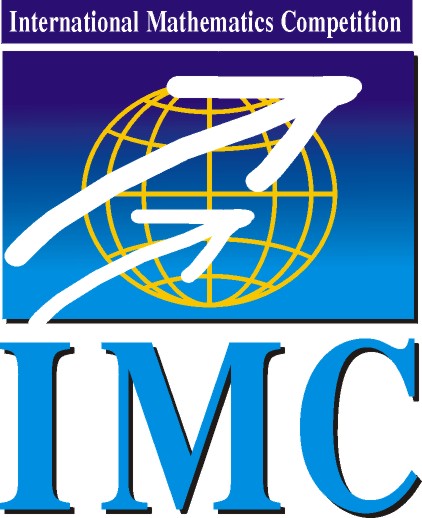
|
International Mathematics Competition
|
IMC 2026 |
| Information | Results | Problems & Solutions | Photos |
IMC2018: Problems on Day 1
Problem 1. Let \(\displaystyle (a_n)_{n=1}^{\infty}\) and \(\displaystyle (b_n)_{n=1}^{\infty}\) be two sequences of positive numbers. Show that the following statements are equivalent:
(1) There is a sequence \(\displaystyle (c_n)_{n=1}^{\infty}\) of positive numbers such that \(\displaystyle \displaystyle\sum\limits_{n=1}^{\infty} \dfrac{a_n}{c_n}\) and \(\displaystyle \displaystyle\sum\limits_{n=1}^{\infty} \dfrac{c_n}{b_n}\) both converge;
(2) \(\displaystyle \displaystyle\sum\limits_{n=1}^{\infty} \sqrt{\dfrac{a_n}{b_n}}\) converges.
(Proposed by Tomáš Bárta, Charles University, Prague)
Problem 2. Does there exist a field such that its multiplicative group is isomorphic to its additive group?
(Proposed by Alexandre Chapovalov, New York University, Abu Dhabi)
Problem 3. Determine all rational numbers \(\displaystyle a\) for which the matrix
\(\displaystyle \begin{pmatrix} a & -a & -1 & 0 \\ a & -a & 0 & -1 \\ 1 & 0 & a & -a \\ 0 & 1 & a & -a \end{pmatrix} \)
is the square of a matrix with all rational entries.
(Proposed by Daniël Kroes, University of California, San Diego)
Problem 4. Find all differentiable functions \(\displaystyle f:(0,\infty)\to\RR\) such that
\(\displaystyle f(b)-f(a)=(b-a)f'\left(\sqrt{ab}\right) \quad \text{for all} \quad a,b>0. \tag2 \)
(Proposed by Orif Ibrogimov, National University of Uzbekistan)
Problem 5. Let \(\displaystyle p\) and \(\displaystyle q\) be prime numbers with \(\displaystyle p<q\). Suppose that in a convex polygon \(\displaystyle P_1P_2\dots P_{pq}\) all angles are equal and the side lengths are distinct positive integers. Prove that
\(\displaystyle P_1P_2+P_2P_3+\dots+P_kP_{k+1}\geq \dfrac{k^3+k}2\)
holds for every integer \(\displaystyle k\) with \(\displaystyle 1\le k\le p\).
(Proposed by Ander Lamaison Vidarte, Berlin Mathematical School, Berlin)
© IMC